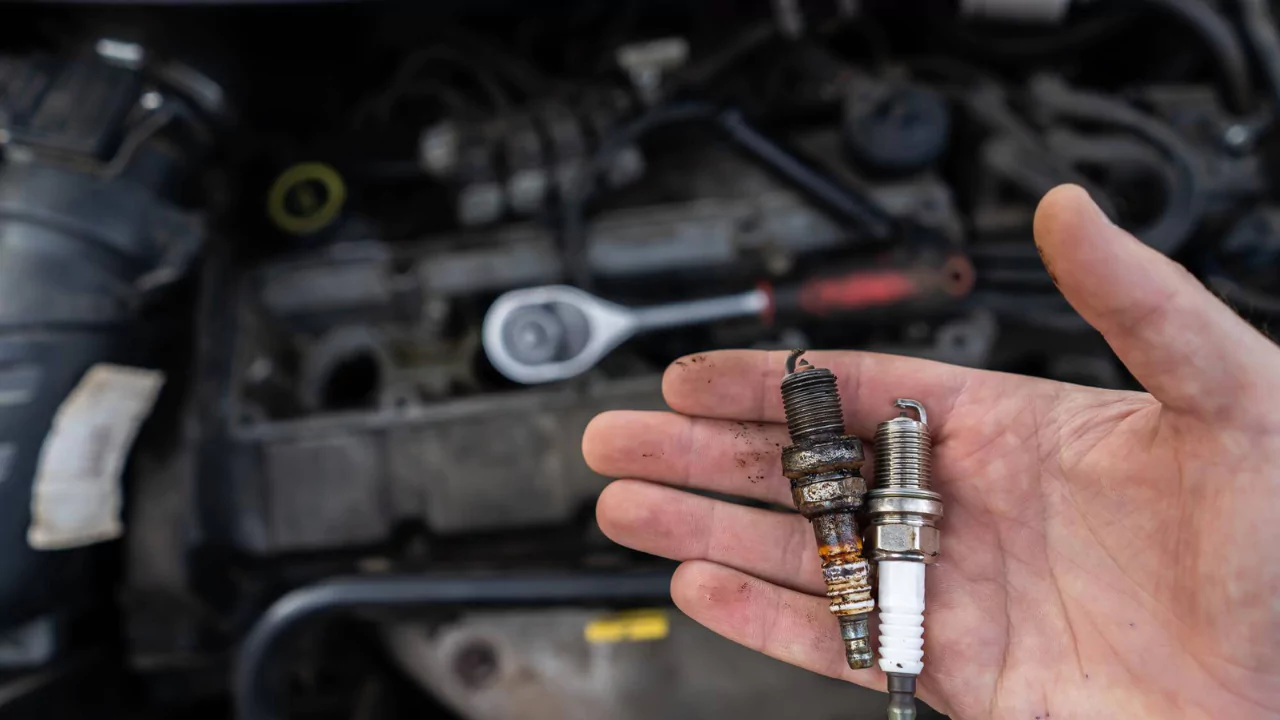What Is a Spark Plug? Function, How It Works, and Signs It’s Time for a Replacement

(Photo credit: mendmotor)
The spark plug may be a small component in a gasoline engine, but its role is critically important for your car's operation.
Without spark plugs, the engine cannot start, and if spark plugs are degraded, it will affect overall driving performance. Understanding the function of spark plugs and the optimal time for replacement will help your car run at peak efficiency and save fuel.
What is a Spark Plug and How Does It Work?
A spark plug is a device installed in the combustion chamber of a gasoline engine. Its primary function is to ignite the air-fuel mixture to create combustion, generating power to move the vehicle.
How it Works:
- As the piston moves up to compress the air-fuel mixture in the combustion chamber.
- The ignition coil generates a high-voltage electrical current and sends it to the spark plug.
- This electrical current jumps across the gap between the spark plug's electrodes, creating a high-temperature spark.
- This spark ignites the fuel mixture, causing a rapid expansion that pushes the piston downwards, generating power during the power stroke.
Spark plugs are components that must withstand high temperatures, immense pressure, and corrosion from the combustion process, giving them a limited lifespan.
Warning Signs It's Time to Change Your Spark Plugs
When spark plugs start to degrade, their ignition efficiency decreases, affecting engine performance, as indicated by these signs:
- Rough Idling or Engine Misfire: This is the most common sign. When a spark plug ignites incompletely or not at all during certain cycles, the car will vibrate or stumble, especially during acceleration.
- Poor Acceleration or Lack of Power: When combustion is incomplete, engine power noticeably decreases, making the car slow to accelerate or feel sluggish.
- Higher Fuel Consumption Than Usual: Incomplete combustion forces the engine to use more fuel to produce the same power.
- Difficulty Starting the Car: Especially in the morning or when the engine is cold, when the spark plug doesn't produce a strong enough spark.
- Check Engine Light Illuminates: The car's computer system may detect ignition abnormalities and trigger the warning light.
- Soot or Deposits Accumulate on Spark Plug Electrodes: If you remove the spark plug for inspection and find excessive carbon fouling, oil, or other deposits, it indicates the spark plug is malfunctioning or there's an underlying engine issue.
When is the Best Time to Change Spark Plugs?
The optimal replacement interval for spark plugs depends on the type of spark plug and the manufacturer's recommendations.
- Standard/Copper Spark Plugs: Made of copper, they have the shortest lifespan. Typically need replacement every 20,000 – 40,000 kilometers (12,000 – 25,000 miles).
- Platinum Spark Plugs: Contain platinum, making them more durable than standard plugs. Usually replaced every 60,000 – 80,000 kilometers (37,000 – 50,000 miles).
- Iridium Spark Plugs: Made from iridium, a very hard and durable metal. They have the longest lifespan. Typically replaced every 100,000 – 160,000 kilometers (60,000 – 100,000 miles) or more.
Important Notes:
- Read Your Owner's Manual: Each car model's owner's manual specifies the recommended spark plug type and the correct replacement interval for that particular vehicle. Always prioritize the manual's recommendations.
- Driving Conditions: If you drive in demanding conditions, such as frequent city traffic, hill climbing, or consistently high engine RPMs, you might need to change spark plugs sooner than scheduled.
How to Choose the Right Spark Plug
- Choose the Correct Type for Your Car: You should select the same type of spark plug that came with your car or as recommended by the manufacturer (e.g., if the manual specifies iridium spark plugs, you should use iridium).
- Select the Correct Heat Range: Spark plugs have different heat ranges. Choosing an unsuitable range can lead to premature wear or abnormal engine operation.
- Purchase from Reputable Stores: To ensure you're getting genuine, quality spark plugs.
Properly maintaining and replacing spark plugs on schedule not only helps your engine run smoothly, efficiently, and with reduced emissions, but it also minimizes the chances of your car experiencing unexpected issues on the road, giving you confidence in every journey.
Claim your free car valuation today!
Read More: Can You Change Spark Plugs Yourself? What Precautions Should You Take?
Looking for a car appraisal? You can contact us for a free car valuation within 24 hours…
